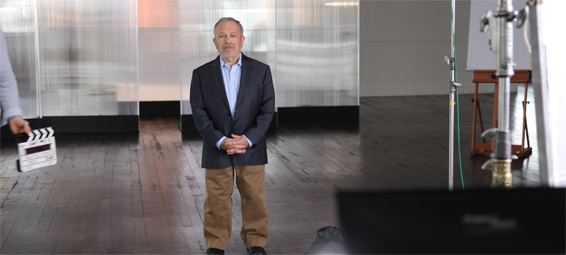Robert Reich won’t give up. The former Trade Secretary under President Clinton has spent the better part of a lifetime preaching a consistent gospel. America’s economic woes are directly related to a disparity of incomes. Economic policy has favored the mega-wealthy in a way that damages the country in the long term. The working and middle classes have gotten the short end of the stick, and what’s even more troubling, many nonetheless back the economic ideology (“get out of my way government!”) that has eroded their position. The United States’ economy worked best in the 1950s and 1960s, Reich says, when a combination of tax rates, strong union influence, and other economic policies kept the income gap between the rich and the poor small. The takeaway: trickle-down economics don’t work, and we need to fix it.
The problem, as Reich touches upon, is that the political climate has changed dramatically, even since the time Reich was in the White House. The right has shifted to the right, and Reich’s views, which were once considered moderate, or left of center, now come across as radical. Empower unions?! Tax the wealthy who “create jobs?!” Reich situates himself where he can probably do the most good, lecturing undergraduates on economic policy. Unfortunately, Reich is at Berkeley, and you get the sense he’s preaching to the choir.
Hopefully more than the choir head to Inequality For All. It’s arguments are sound, legible, and convincing, and they are couched in a visual style that makes graphs feel dramatic and is generously peppered with Jon Stewart clips. It’s Reich, though, who is truly the star of his own film. Avuncular and affable, he is never preachy or aloof, and always armed with a joke about his height. Make no mistake, this is a one person show, and those who come in with opposing economic ideas may feel wrankled by the one way dialogue. The film’s most convincing moments, though, come when he interviews the very people who, you would think, would hate a guy like Reich. A venture capitalist confesses that the money he saves due to generous high income bracket tax breaks doesn’t reenter the economic system (“I have the most expensive Audi you can buy, but I can only buy one of them”). And the workers who should be advocating for reform support the policies that depress their own wages (“If I had the brains and luck to be rich, I wouldn’t want the government taking it either,” says a power plant employee).
It’s this disconnect, the people benefiting from the economic system are the ones criticizing it, and the people who are victims of it support it. That presents the most troubling aspect of the film, namely, that America’s economic situation is rooted in conflicting ideologies that increasingly struggle to find common ground. The fight for policy is a fight for minds. Perhaps there’s no better indication of this than Reich’s own career, which has evolved from policy offices to the classroom, and now, the media.






